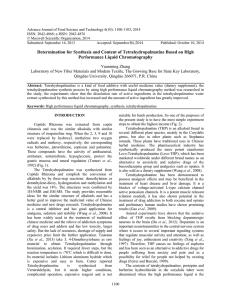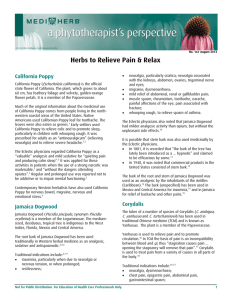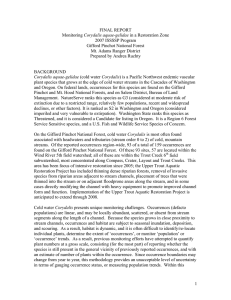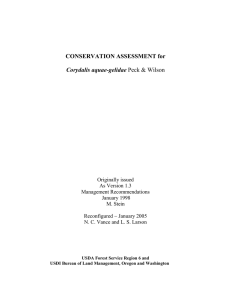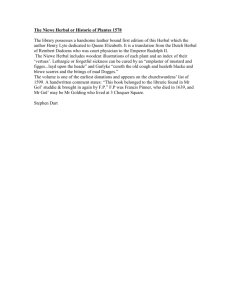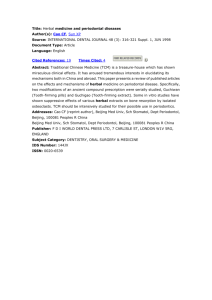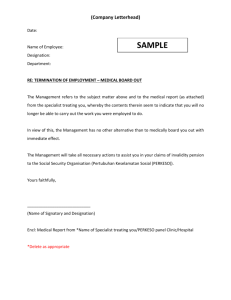Corydalis (Corydalis yanhusuo) Is it effective?
advertisement
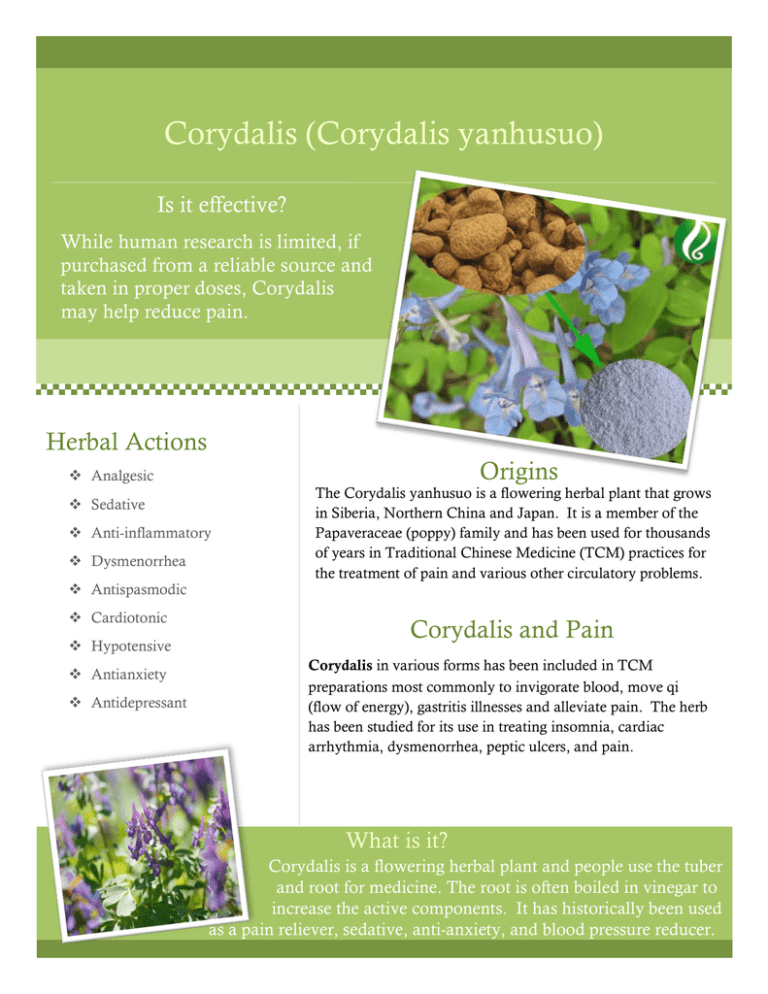
Corydalis (Corydalis yanhusuo) Is it effective? While human research is limited, if purchased from a reliable source and taken in proper doses, Corydalis may help reduce pain. Herbal Actions Origins v Analgesic v Sedative v Anti-inflammatory v Dysmenorrhea v Antispasmodic v Cardiotonic v Hypotensive v Antianxiety v Antidepressant The Corydalis yanhusuo is a flowering herbal plant that grows in Siberia, Northern China and Japan. It is a member of the Papaveraceae (poppy) family and has been used for thousands of years in Traditional Chinese Medicine (TCM) practices for the treatment of pain and various other circulatory problems. Corydalis and Pain Corydalis in various forms has been included in TCM preparations most commonly to invigorate blood, move qi (flow of energy), gastritis illnesses and alleviate pain. The herb has been studied for its use in treating insomnia, cardiac arrhythmia, dysmenorrhea, peptic ulcers, and pain. What is it? Corydalis is a flowering herbal plant and people use the tuber and root for medicine. The root is often boiled in vinegar to increase the active components. It has historically been used as a pain reliever, sedative, anti-anxiety, and blood pressure reducer. 1 3 2 lorem ipsum dolor Corydalis (corydalis yanhusuo) Common Uses Insomnia As a sedative, corydalis is thought to induce sleep. One of many constituents of the plant, dl-THP, has been found to block receptor sites in the brain to cause sedation. Pain and Dysmenorrhea THP acts on the central nervous system to reduce nerve pain. Its painkilling effects have been helpful in treating headaches and low back pain. It is also particularly effective for treating painful menstruation by influencing the central nervous system, promoting relaxation, and providing pain relief. issue, date Safety and Contraindications Ulcers • Corydalis extract may be useful for treating peptic and stomach ulcers. The extract has been shown to decrease inflammation of the stomach lining thus easing systems and improving healing. • • • • • Avoid use if pregnant or nursing. Avoid use in individuals with severe liver or kidney disease. Overuse may lead to toxicity or hepatitis. May cause liver injury, nausea, fatigue or vertigo. May be habit forming. May enhance effects of sedatives and should not be used at the same time. Dosage & Price General recommendations for analgesic or sedative effect Dose: 5-10 grams per day of crude, dried rhizome in capsule Price: Sage Apothecary $29.95/150 caps (450 mg each) $59.90 per month using ~ 11 pills/day Dose: 3.25-6.5 grams per day of raw extract Price: Sage Apothecary $21.95/100 g $10.98 per month using ½ tsp. 3/day Dose: 2 droppers, 2-3/day (severe pain, 3-4 droppers, 3-4/day 2
